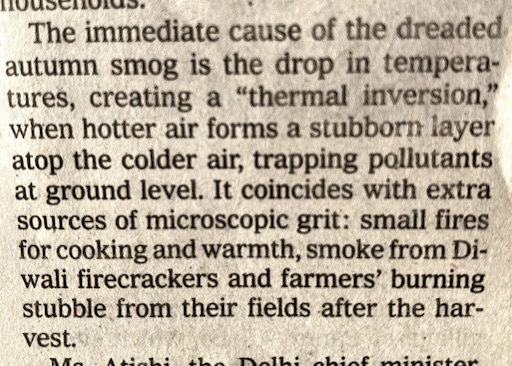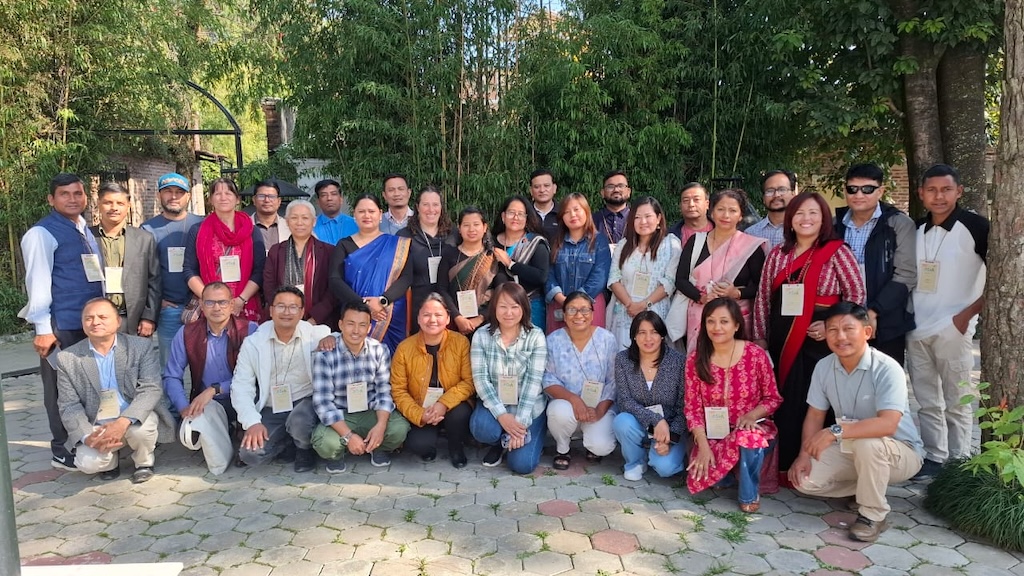Mitch Rhodes
This week I’ve been battling a cold. One that kept me home in bed on Monday. I did have an online lesson with my Nepali teacher that day, where of course one of the topics was my cold and what I should be doing to get rid of it. My teacher, Himal, about my age, grew up in a small rural village in the hills east of here and about a two-day walk to the nearest road with a bus going to Kathmandu even a decade ago. So, without Miller’s Medicine Cabinet in the vicinity to get all the grape or cherry-flavored children’s medicine, he was always given home remedies. I tried one of those on his suggestion, and learned some new words in the process, namely for cumin, ginger, black pepper, tumeric and salt (that one I already knew). So just mix that all up in hot water and choke it down. I tried my best. My cold didn’t disappear right away, but it was worth a shot.
In happier news, the world recently celebrated International Men’s Day. In honor of this, all the UMN men on staff at our Kathmandu office came out to make the pomelo (akin to grapefruit) snack and serve the women. These fruits are harvested twice a year by our maintenance staff from a few pomelo trees on campus and then prepared with yogurt, mustard oil, chilies, sugar, and salt. It makes a deliciously wild taste in your mouth and is quite yummy. Usually, it’s the women who prepare this snack for all staff to enjoy, because it’s food, after all. But recently at a gender equality conference, the staff UMN observed that they were tired of always having to be in charge of the pomelo snack. So our colleague Andreas, who works specifically on Gender Equality issues, called all men to bring their sharpest knives to work that day and we served the women this time. It showed up on the UMN feed as a Facebook “story.”
The title of this blog post mentions an air quality update. Likely you can guess it’s not great, or else I wouldn’t be writing about it. You may have seen international news regarding Delhi, India, recently. The air there is running from “unhealthy” to “hazardous.” Kathmandu air is “moderate” to “unhealthy” these days, depending on the day. This means the mountains aren’t showing themselves as often. It seems it was a short season of mountain viewing during the month or so around October. We are back to running air filters inside, and we have pollution masks on order, arriving with Adam from Canada next month. KN95 masks are not easy to find here, and although some people in the city wear surgical masks when they are going about town, I’ve read that those do little to nothing to help against finer pollution particulates. Also, in the news about the recent terrible air quality especially in Delhi (India) and Lahore (Pakistan), we read this bit of explanatory information that Lora took a picture of below. It holds for Kathmandu as well, where the polluted air gets trapped in the valley that we sit in the middle of.
I’ve also read that farmers are burning stubble from their fields more than they did longer ago. As more and more young people leave the countryside all over South Asia to either work in cities or abroad and send money home to their families, the people left at home are older and less able to take care of all the farmwork. Traditionally, rice and wheat stubble left after harvest was cut and used as bedding or fodder for livestock. But it’s a labor-intensive process, so more and more, these older farmers are resorting to simply burning off the stubble.
Last week Lora was able to attend the Micah Conference in town with a large number of our UMN colleagues. The office was a little lonely those days. When I say a large number of our UMN colleagues, below is the group photo they took at the conference of just the UMN staff.
Here is what Lora says about her time:
The Micah Network is a worldwide organisation of Christian workers in humanitarian relief and development. This meeting in Kathmandu was the Asia regional meeting, and about half of those in attendance were Nepali. Although it didn’t always directly relate to my work in staff care and counselling, I was happy to be there as part of the conversation about theological and ethical issues in Christian and humanitarian work in the Asian context. I was also glad to meet people from different organizations who were doing the same work as I am. I enjoyed the workshops on ethical storytelling and climate change. Climate justice was a big focus of our sessions. The worship and the preachers were very good. In fact, the keynotes were excellent. The hardest but also the best thing of the three days was that on the last day, I was twice asked to pray in plenary, the first time with only 15 seconds of lead time. Then the second time, although I had fifteen minutes to prepare, was for leading the closing and blessing of the entire three-day conference! And while I don’t like to do this without warning, it was nice to use my skills and be seen. There had been conversations over the three days about singing our theology, so as our Mennonite tradition is singing one, I taught a song –which then led to more connections to other Anabaptist folks or people with connections to Anabatsists, often MCC-related.




